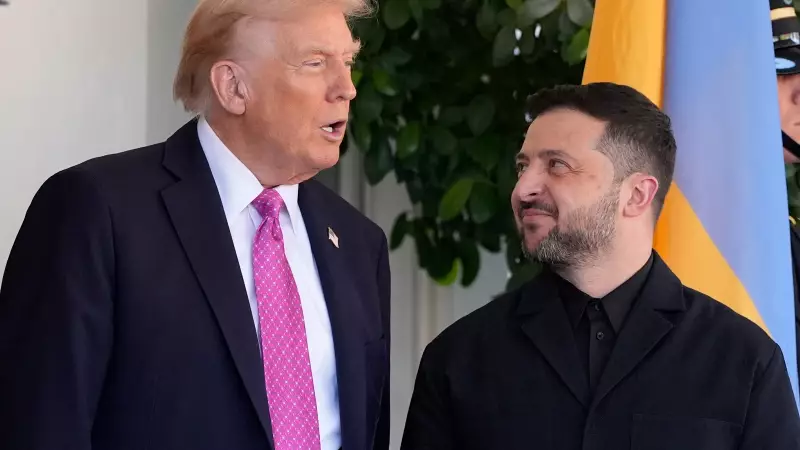
The White House has broken its silence on explosive allegations emerging from a new book that claims former President Donald Trump made a startling suggestion to Ukrainian leader Volodymyr Zelenskyy regarding Russian surveillance drones.
According to veteran journalist David Sanger's forthcoming book "New Cold Wars," Trump reportedly proposed during his presidency that Ukraine should use American Tomahawk missiles to shoot down Russian drones operating in Ukrainian airspace. This controversial suggestion, if true, would have represented a significant escalation in US involvement in the Ukraine conflict.
Pentagon's Immediate Concerns
The book reveals that Trump's proposal immediately raised red flags at the Pentagon. Military officials were reportedly concerned that using sophisticated Tomahawk missiles against relatively inexpensive drones would be both strategically and economically inefficient.
More alarmingly, defense experts worried that such an action could potentially reveal classified technical capabilities of the advanced missile system to Russian intelligence, compromising US military secrets.
White House's Official Response
When pressed for comment, White House National Security Council spokesman John Kirby offered a measured response. "We're not going to comment on alleged conversations between former President Trump and Ukrainian officials," Kirby stated during a press briefing.
He emphasized the current administration's focus remains on "providing Ukraine with the security assistance it needs to defend itself" against Russian aggression, while carefully avoiding direct confirmation or denial of the specific allegations.
Historical Context and Implications
These revelations come at a sensitive time in US-Ukraine relations, particularly as current President Joe Biden faces political challenges in maintaining congressional support for continued military aid to Ukraine.
The alleged conversation between Trump and Zelenskyy, if verified, would add another layer to the complex relationship between the former president and Ukraine—a relationship that previously led to Trump's first impeachment in 2019.
As the 2024 presidential election approaches, these claims are likely to fuel further debate about America's role in supporting Ukraine against Russian invasion and the appropriate use of American military technology in foreign conflicts.





